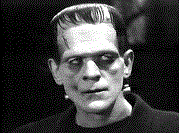
It is not often that anyone gets to sit and listen to a medical doctor, a scientific advisor to the government and two academics in the same conference, let alone on the same panel talking to one another, but that is what happened to me this week. They were there to celebrate the launch of a new, university-wide research centre called ‘The Centre for Interdisciplinary Research into the Humanities and Science’ (www.reading.ac.uk/irhs) with a public roundtable discussion held at the university, based on short talks given by each invited speaker.
Even the nam e might put you off at first. What, you might reasonably think, does science have in common with the humanities? Then you begin to think about it and realise that the title of the event ‘Science and Storytelling’ is not so bizarre after all. Most of us know the story of Dr Frankenstein and his monster, and that was certainly a link between science and storytelling and, as the event progressed, I realised that there are plenty of ways in which we have used storytelling to explain science (many myths are rooted in science, apothecaries wrote in literary forms, science fiction is ever popular). Then I thought about our recent fascination with forensic science in our literature and on our screens: that is certainly linking science and literature.
e might put you off at first. What, you might reasonably think, does science have in common with the humanities? Then you begin to think about it and realise that the title of the event ‘Science and Storytelling’ is not so bizarre after all. Most of us know the story of Dr Frankenstein and his monster, and that was certainly a link between science and storytelling and, as the event progressed, I realised that there are plenty of ways in which we have used storytelling to explain science (many myths are rooted in science, apothecaries wrote in literary forms, science fiction is ever popular). Then I thought about our recent fascination with forensic science in our literature and on our screens: that is certainly linking science and literature.
I started to feel on more comfortable ground until I realised that the speakers had been asked not to talk just about science influencing literature, but they had also been given the
 dastardly task of talking about how literature had influenced science. Surely, I thought, that is not likely? Literature is the vehicle we use to explain all sorts of things and it is the product of our imagination, whilst science is about fact and reality, so the former could not influence the latter – it would have to be the other way around. Then I learned that early practitioners in psychology and even in physical medicine would use accounts from literature to explore and diagnose diseases of the mind and body. I also found out that our understanding of many scientific phenomena has been influence by literary creations. The link is sometimes fleeting, but it is there: it does seem that storytelling can influence science.
dastardly task of talking about how literature had influenced science. Surely, I thought, that is not likely? Literature is the vehicle we use to explain all sorts of things and it is the product of our imagination, whilst science is about fact and reality, so the former could not influence the latter – it would have to be the other way around. Then I learned that early practitioners in psychology and even in physical medicine would use accounts from literature to explore and diagnose diseases of the mind and body. I also found out that our understanding of many scientific phenomena has been influence by literary creations. The link is sometimes fleeting, but it is there: it does seem that storytelling can influence science.
So, I started the week with two nicely divided compartments in my brain: literature sat on one side and science sat on the other. I was quite good at science at school and so have a fondness for the subject, but even so I was happy to have them divided. By the end of the week I sit here having had that nice order scrambled up. There is now a mental channel in my mind between literature and science. That is what happens when you work or study at a university: you cannot guarantee that anything will stay the same from one week to the next. Thank goodness.

